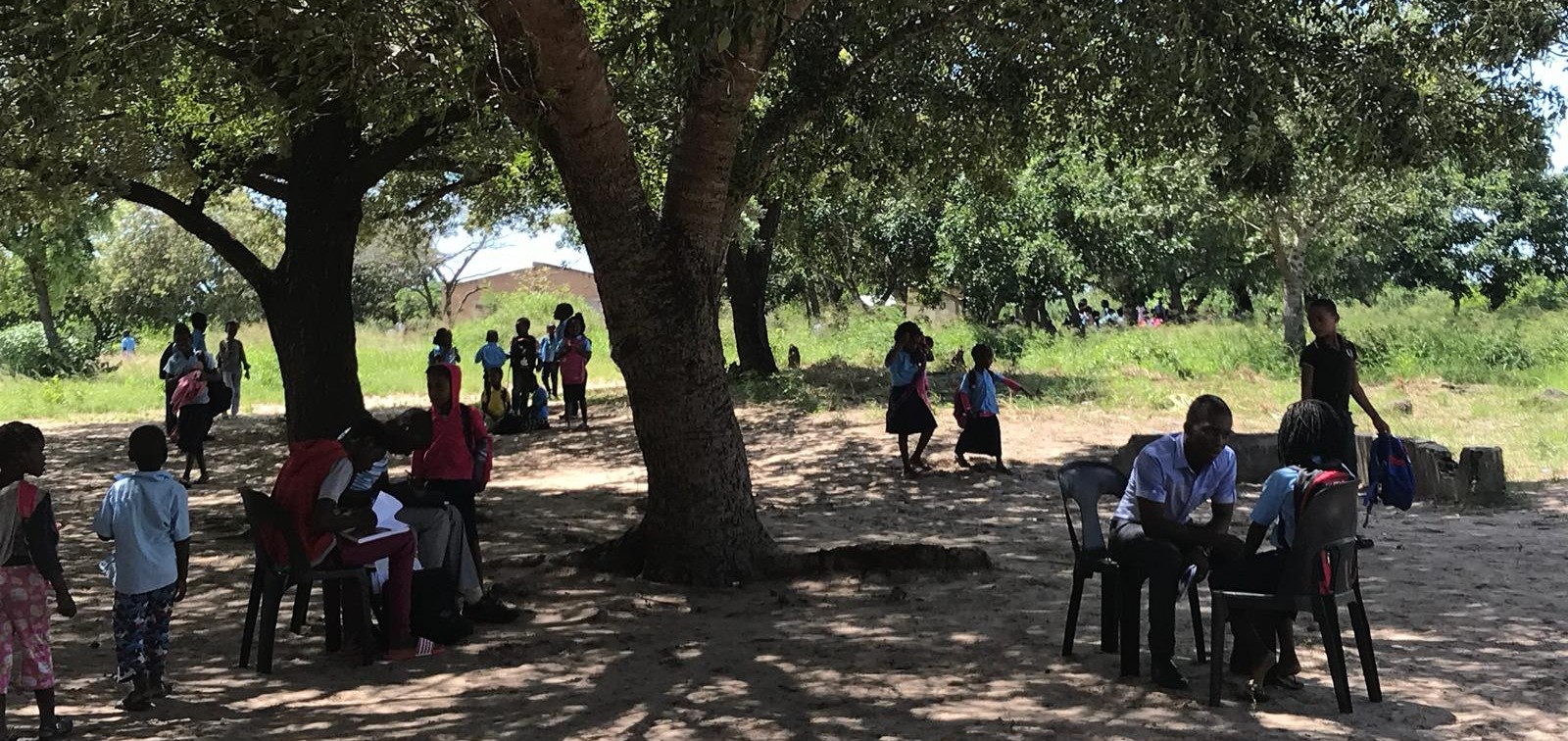Infections by Intestinal Parasites Could Facilitate Malaria Infections, and Vice Versa
A study performed in Mozambique, where both diseases are endemic, analysed the immune response in individuals who have been exposed to both types of parasite
09.12.2021
Infections by different intestinal worms (helminthiasis) could favour infections by the malaria-causing parasite P. falciparum, according to a study led by the Barcelona Institute for Global Health (ISGlobal), an institution supported by “la Caixa” Foundation, in collaboration with the Manhiça Health Research Center (CISM). The findings underscore the importance of understanding the impact of coinfections and natural exposure to these parasites for improving strategies aimed at their control.
Malaria and helminthiasis are two common diseases in tropical and subtropical regions, particularly among poor populations with limited access to drinking water and sanitation. Hence, the probability that both parasites will end up infecting the same person is high.
“We know that the malaria parasite (P. falciparum) and helminths induce different types of immune response,” explains Carlota Dobaño, ISGlobal researcher and senior co-author of the study. The former induces what is called a Th1 response, characterised by the productionof IgG1 and IgG3 antibodies and effective in eliminating intracellular parasites. In contrast, helminths induce a less inflammatory Th2-type response, more effective against extracellular parasites and mediated by IgE and IgG4 antibodies. “We therefore wondered how is the immune response in someone who has been infected by both parasites”, says Dobaño.
To answer that question, researchers from the malaria programme worked hand in hand with the team led by Jose Muñoz, from the parasitic and imported diseases programme, to determine the type of antibodies recognising both parasites in a cohort living in Manhiça, a district in Southern Mozambique where both infections are endemic.
The study included 715 children and adults from six locations in Manhiça, for which detailed socioeconomic information was also available. The research team analysed the level and type of antibodies against 16 P. falciparum antigens and 11 antigens from different helminths. In addition, they determined whether the participants were infected at that moment or had been previously exposed to the parasites.
The results show that 83% of participants were infected, or had been previously infected, by both parasites. This coinfected or coexposed group (in which most adults were concentrated) had higher levels of total IgE and IgG and a higher diversity of IgG antibodies against both parasites (i.e. capable of recognising a higher number of antigens from both parasites), as compared to those who had only been infected by one type of parasite. In addition, coinfection among children was associated with a trend towards a higher load of P. falciparum parasites.
“We think that the observed increase in antibodies reflects a higher exposure to the parasite,” says Rebeca Santano, first co-author of the study together with Rocío Rubio. “This suggests that P. falciparum infections create an “immune environment” that facilitates helminth infections, and vice versa,” she adds.
The majority of adults belonged to the coinfected or coexposed group, but this was not associated with socioeconomic factors or access to water and sanitation. “However, we cannot discard the role of other factors, such as malnutrition, in increasing susceptibility to both infections in this population,” says Gemma Moncunill, senior co-author of the study.
“One of the strengths of this study is that it also included people who were not infected at the moment, but had been previously infected by P. falciparum or helminths,” says Dobaño. This is particularly relevant in endemic areas where repeated infections can leave a footprint on the immune system, affecting the way it responds to subsequent infections.
Refere
Rebeca Santano, Rocío Rubio, Berta Grau-Pujol, Valdemiro Escola, Osvaldo Muchisse, Inocência Cuamba, Marta Vidal, Pau Cisteró, Gemma Ruiz-Olalla, Ruth Aguilar, Maria Demontis, Jose Carlos Jamine, Anélsio Cossa, Charfudin Sacoor, Jorge Cano, Luis Izquierdo, Chetan E. Chitnis, Ross L. Coppel, Virander Chauhan, David Cavanagh, Sheetij Dutta, Evelina Angov, Deepak Gaur, Lisette van Lieshout, Bin Zhan, Jose Muñoz, Gemma Moncunill, Carlota Dobaño. Plasmodium falciparum and helminth coinfections increase IgE and parasite-specific IgG responses. Microbiology Spectrum. 2021.



